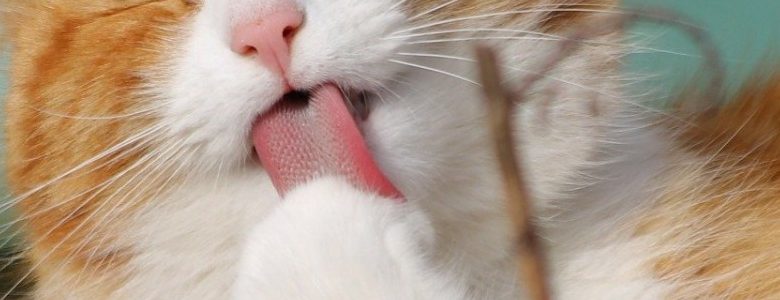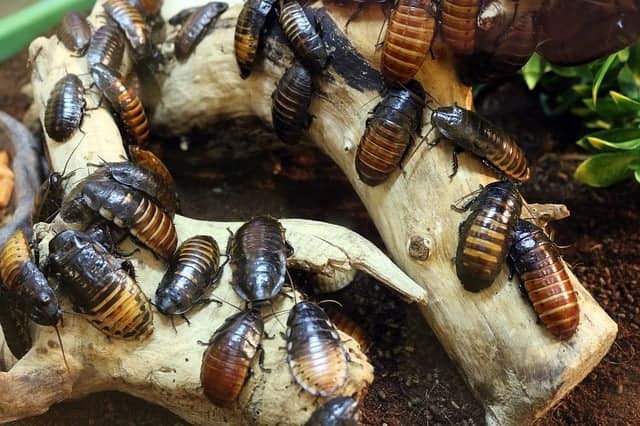Is Borax Safe for Cats? Borax for Fleas
Hey Pet Lovers & Pet Parents,
Maybe you know that borax (sodium borate) is as a cleaner and antiseptic. Also, it’s used in toothpastes, water softener, pesticide, and mouthwashes.
Well, recently, we discussed how borax can be used as a flea killer around the house. But how safe is it around dogs and cats.
Is borax safe for cats? Yes and No. Cats, and kittens are more sensitive to the toxicity of borax than humans are – and if your cat ingests a large amount (5 grams and above), it damages their internal organs and skin which can cause poisoning, breathlessness, allergies, and death.
- Moreover, inhaling sodium borate powder can inflame or irritate the respiratory system’s mucous membrane.
- Normally, dogs and cats do not lick sodium borate. But if they have it on their paws, they may lick it.
[amazon bestseller=”Best Fleas Treatment for Cats” items=”2″ template=”table”]
- Borax and boric acid are considered safer pesticides in comparison to other chemicals in killing fleas, ants, roaches, and fleas.
- The 20 Mule-Team Borax is one of the borax-based cleaning products. However, borax is safe for cats if ingested in small and EPA-approved amounts.
Is Borax Safe for Cats? Borax for Fleas
If ingested in small amounts in ingested as recommended by the Environmental Protection Agency, Borax is safe and won’t harm your small pets including cats and dogs.
- Despite not being very toxic, if borax is ingested in large amounts by your hamsters, dogs, or cats, it may be toxic compared to its effects on humans.
- Similarly, inhaling sodium borate may inflame or irritate the respiratory system. But borax will be safe for your cat and kittens.
Its rare that your cats and dogs will lick the Borax (sodium borate) directly. But if the borax is stuck on the claws of these felines and canines, they may ingest it as they clean their claws.
Borax is not harmful to cats – at least when used properly by manufacturers’ instructions. Boraxo or 20 Mule-Team Boragon can be purchased from most grocery stores without any issue whatsoever.
Related: Using 20 mule team borax for pest control
Is Borax Great for Killing Ants and Fleas?
Yes, borax is safe for cats. It’s a popular way of getting rid of fleas, as it dehydrates them while also killing them.
As a result, fleas have no defense against borax. Borax penetrates their skin to get to the larvae and kill them outright. But eggs that are still forming couldn’t be penetrated by the borax solution.
Borax is fatal to ants, it’ll damage the bug’s digestive system and exterminates the ants within 24-48 hours – removing the ant queen and the other colony.
- The first step in eliminating an ant infestation is figuring out where they’re entering your home.
- When ants find food they need to share it with other ants in their colony by leaving behind some pheromone trail.
Actually Borax has some advantages over traditional pesticides such as DEET-based products because it doesn’t kill the good bugs like pollinators that are needed to make our food plants grow.
It’s also not toxic to humans when ingested in amounts less than what you would get from simply using it once on your carpet; however if swallowed, vomiting may occur due to stomach irritation by gastric fluids.
Symptoms of Borax Poisoning in Cats
The symptoms of toxicity in cats after taking excessive amounts of borax include:
- If swallowed, vomiting may occur due to stomach irritation by gastric fluids.
- Excessive salivation or drooling
- Confusion
- Dropping food from the mouth and eating non-food items such as dirt and stones
- Loss of appetite (anorexia)
- Nervousness or excitability during initial exposure stages followed by depression following chronic intoxication stage.
Signs are most severe between 24 hours after ingestion until 36 hours after ingestion.
When ingested in small amounts that would be a normal amount for someone with sensitive skin; however, if swallowed it can cause nausea, abdominal pain, vomiting, and diarrhea.
Related: Top Flea Foggers and Bombs
How to Treat Borax Poisoning in Cats
In the event your cat comes into contact with borax, a veterinary doctor should administer treatment to avoid toxicity. If your cat ingested borax:
- Remove the animal from the area of exposure to prevent further ingestion of the chemical (if not already done).
- I would recommend dialysis on the cat as this will easily remove the borax from the animal’s body. You may also use IV fluids on the cat to help reduce the effect of borax.
- Don’t use activated charcoal and don’t force the cat to vomit
For further precaution, was the cat thorough using some mild detergent or that suitable cat shampoo.
Using borax on cat fleas
Borax is not recommended as a flea control product. It can be used to eliminate carpets, but it does not kill the eggs or larvae of fleas and ticks in your home.
Borax also doesn’t work well on hard surfaces and has no residual effect which means that you will still need to use other products if you want complete protection from these pests.
- But, if you do decide to apply borax powder directly onto the fur of your pet, we recommend that you only use one teaspoon at a time as this will dramatically reduce any risks associated with its application.
Remember to wash them after they have been outside because fleas and ticks are attracted to their blood which means they could potentially come back inside with them from areas where there’s an infestation.
Borax is safe for cats plus another small pest if used as intended. Always go for brands and quantities that are EPA-registered for your intended use to reduce chances of toxicity.
If you are trying to control fleas in your cat, fill borax into crevices, cracks, and carpet and leave it there for around 24 hours before vacuuming it. Don’t put the borax powder directly on your cat’s.
For fleas, borax will damage their exoskeletons but for other insects like termites, ants, and cockroaches, it’ll cause stomach poisoning.
- Sprinkle Borax across the floor, and in carpets. This is great for fleas, as it kills their larvae, but may not exterminate the adult fleas since they’ll only feed on pet blood.
Therefore, Borax must be used only as part of a comprehensive flea or ant-treatment program since it may not eliminate these insects alone.
Conclusion
The safety of borax for cats is a contentious issue, with some claiming it to be hazardous while others maintain that it can be safe when used correctly.
- Borax for Fleas: Borax is not very effective in killing cat flea and may be toxic if used in large amounts – 5 grams and over.
- So, before settling on using borax, employ other flea and ant control methods like IGRs and pyrethrin sprays.
- This is less of a concern for dogs, which do not groom themselves as regularly and so are likely to ingest fewer particles.
In short: Borax can be safe if used in appropriate amounts – but should always be used only with other methods of flea control.
Always store it well in places out of reach of both your children and pets since they may accidentally ingest it. Also, get rid of any spillages.




![How To Remove Ants From Carpet [DIY Guide]](https://pestpolicy.com/wp-content/uploads/2021/10/How-To-Remove-Ants-From-Carpet.jpg)


